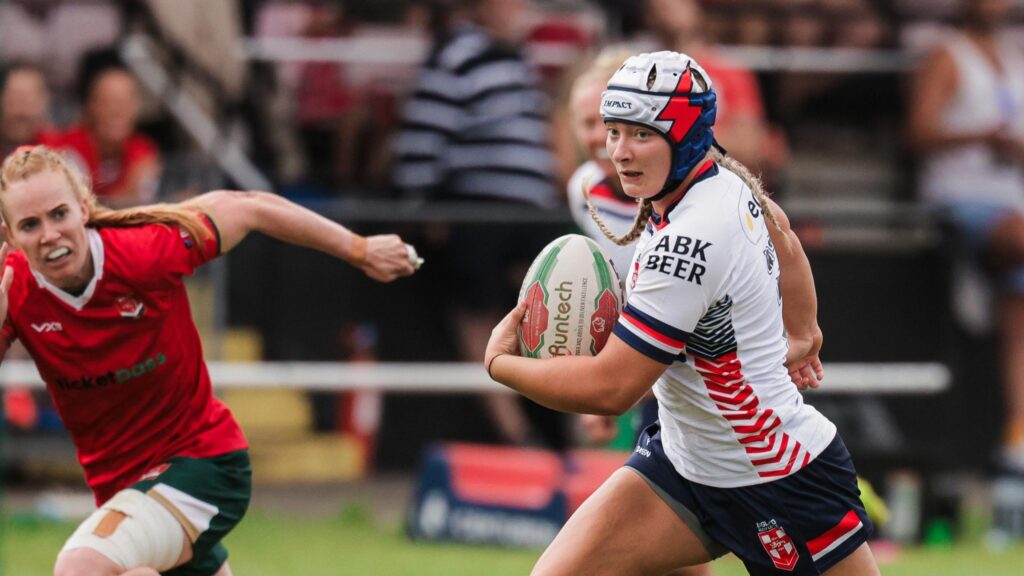In a dominant display of athleticism and skill, the England women’s rugby team triumphed over Wales with an impressive scoreline of 62-0 in a recent international match held at The Gnoll in Neath. The match showcased England’s supremacy as they scored 11 tries, marking a significant comeback after their previous defeat against Australia, where they suffered a staggering loss of 90-4. This recent victory is not only momentous for the players but serves as an encouraging step toward their preparations for the upcoming Women’s Rugby League World Cup scheduled to take place in Australia in October 2026.
Isabel Rowe emerged as a standout player during this match, contributing significantly to her team’s success. The 18-year-old half-back from Wigan showcased her remarkable abilities by scoring one of the tries and successfully converting an impressive nine others, ultimately amassing 22 points for her team. Under the guidance of head coach Stuart Barrow, the England team was not only looking to redeem themselves but also to build a new identity, evident in their selection of the starting lineup, which featured five debutants.
The match commenced with early aggression from England, as Jenna Foubister and Molly Jones, both making their international debuts, scored within the first 10 minutes. These quick tries set the tone for the game, rallying the team as they accumulated a healthy lead. Anna Davies, who previously scored five tries in England’s record-breaking win over Wales, also added to the scoreboard, followed by another debutant, Lucy Murray, further extending the lead to 22-0 by the end of the first half. The offensive display exhibited by the team was complemented by a steadfast defense, which ensured that Wales could not find the scoreboard at any point.
After the halftime break, England’s onslaught continued with Eva Hunter, another debutant, scoring two tries, bringing her team’s total to 62 points. Rowe’s impressive performance included her own try, evidencing her pivotal role in the game. Others who contributed to the final score included Bella Sykes, Eboni Partington, and Georgia Wilson, all of whom made significant contributions that rounded off a phenomenal team effort.
Reflecting on the game, Wales head coach Thomas Brindle emphasized the potential within his squad, despite the defeat. He expressed immense pride in his team’s effort and commitment, noting, “We’ve got to get fitter, faster, stronger.” He acknowledged that improvement is necessary to compete at higher levels, especially as both teams gear up for the World Cup. The progress made by Wales was highlighted in their recent victory over Scotland before facing England, indicating a trajectory of development.
Meanwhile, England’s effort to rebuild following the lackluster performance against Australia included judicious strategic alterations and the infusion of young talent alongside experienced players. Coach Stuart Barrow stated that closing the gap between them and stronger teams like Australia is part of their goal as they continue to develop. A crucial moment in the match included a significant tackle from Grace Banks that thwarted a late first-half attempt from Wales, showcasing England’s defensive prowess.
In summary, England’s emphatic victory against Wales not only serves as a statement of their capabilities heading into the World Cup but also illustrates the ongoing evolution of the women’s game. With emerging talent and a focus on enhancing fitness and competitiveness, both England and Wales are aiming to make a mark on the international rugby stage, bolstered by their commitment to improvement and performance on the field.











